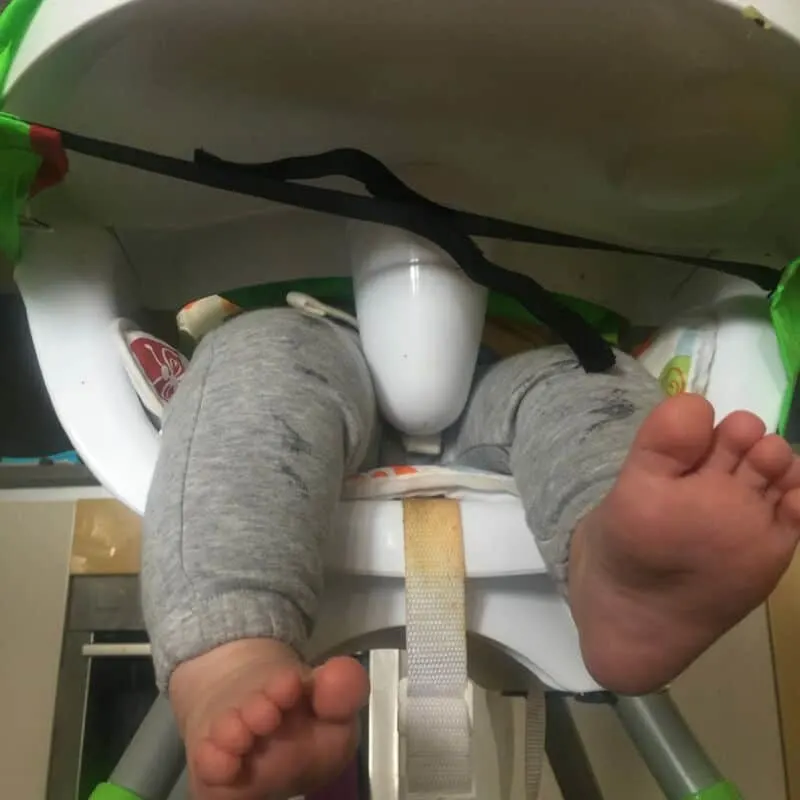Whether you’ve been planning quick and easy snacks or delicious home cooked meals to feed your baby, you have probably stopped to wonder, can babies have Philadelphia? at some point along the way.
The good news is that, yes, babies can have Philadelphia as it is a pasteurised cream cheese product. In fact, it makes a great addition to your baby’s diet and is a great first food choice for babies who are able to pick up food, such as toast, and feed themselves.

Cheese and Baby Led Weaning – How to introduce cheese to your baby’s diet.
There are lots of types of cheeses on the market, so choosing the right ones that are safe and nutritious for babies can be a bit confusing for parents. There are a variety of categories to shop from when looking for cheese, from hard and soft, to those with moldy cheese rinds.
If you’re searching for the best way to introduce cheese to your baby’s diet, asking the question, can babies have Philadelphia? is a great start, but there’s also a lot of other things to consider if you want to make sure the food you’re offering is healthy and safe. In this article we’re going to be looking at the following points and discussing them in detail to help you to make informed decisions about your baby’s diet.
- Pasteurised Cheese Verses Unpasteurised Cheese
- Are There Differences Between Processed and Unprocessed Cheeses?
- How Old Does My Baby Have To Be To Eat Cheese?
- How To Offer Cheese To Your Baby
Let’s take a look at each point in turn.
Pasteurised Cheese Verses Unpasteurised Cheese
When thinking about healthy diets, we know that some cheeses can form part of a balanced diet for babies and young children, providing them with fats, calcium, protein, and vitamins. One of the important things to look out for when shopping for a suitable cheese that your baby can eat is whether or not the cheese has been pasteurised.
When asking can babies have Philadelphia?, the answer is yes because this cheese has gone through the process of being pasteurised. Hard cheeses, cottage cheese, and cream cheese are all considered safe for babies as they’ve been through the pasteurisation process that removes any bacteria that could potentially harm your baby.
Cheeses that have been made from unpasteurised milk should be avoided as these carry the risk of containing listeria, a bacteria that can make your baby very ill. However, unpasteurised cheeses can be used in cooking and given to babies and young children as part of a hot meal because heating the product kills off the listeria bacteria.

Are There Differences Between Processed and Unprocessed Cheeses?
Typically, heavily processed cheeses will contain a higher sodium level, offer a limited nutritional value, and contain additional ingredients that help to preserve the food.
When choosing the best type of cheese to offer in your baby led weaning journey, it’s always best to avoid heavily processed cheeses where possible. You may have asked can babies have Philadelphia? because the label itself is hard to decipher; but when looking at the ingredients list and comparing them to other cream cheese products, Philadelphia certainly does contain a higher level of ingredients in comparison to generic store brands.
With that being said, it’s important to remember that not all processed cheeses are the same. For example, cheese slices that are often used in children’s sandwiches and burgers contain far more salt than a serving of Philadelphia cream cheese.
How Old Does My Baby Have To Be To Eat Cream Cheese?
Whether you’re wondering can babies have Philadelphia?, or you’re considering offering other types of soft cheese for their lunch, you will need to wait until your baby is at least 6 months of age.
When shopping for cream cheeses that will make healthy additions to your baby’s diet, look out for types of cream cheese that contain less than 100mg of salt overall. If you’re unable to find a soft cream cheese that doesn’t have high salt levels, you can consider other soft cheeses such as mascarpone.
How To Offer Cheese To Your Baby
Cheese is a versatile food that can be given in a number of ways. Hard cheeses such as cheddar can be offered in small cubes when practising baby led weaning, or given grated in sandwiches.
When considering can babies have Philadelphia and other cream cheeses, spreading these on toast or bagels is a good way to introduce cheese to younger babies. Of course, you can also use cheeses in your cooking too, for example cheese is a key ingredient in our Broccoli and Cheese Muffins.

Cheese Can Cause Constipation
When given in excess, cheese can cause constipation in babies and young children. This is due to high fat levels and a low fibre content. If you are feeding your baby significantly more than the recommended amount of cheese, your baby may find that going to the toilet becomes a painful and uncomfortable experience due to hard stools and constipation.
In order to avoid constipation, be sure to offer no more than around 1-2 oz of cheese per day, include foods with fibre in your baby’s diet, and ensure that your baby is having enough fluids in order to promote healthy digestion.
Can My Baby Be Allergic To Cheese?
Yes, cheese can cause an allergic reaction as cow’s milk is a common allergen. Bear in mind that other dairy products that are produced from animals such as sheep and goat may also provoke a similar allergic reaction. If you suspect your baby may be allergic to milk, it’s best to consult your GP as they may be able to recommend allergy testing or offer advice for dairy introduction under medical supervision. As with all common allergens, it’s best to offer a small serving on its own at first; if there’s no adverse reaction to the allergen, you can gradually increase the quantity of food over time.

Conclusion
Cream cheese, such as Philadelphia, can be given to babies from the age of 6 months. When asking “can babies have Philadelphia?”, it’s worth noting that other brands of cream cheese may contain lower sodium levels and few additional ingredients, therefore it’s always wise to check the label before purchasing. Cheese is a great food choice for baby led weaning and can form part of a healthy balanced diet – just be sure to avoid offering it in excess as the high fat content and low fibre levels can cause stomach upsets.
